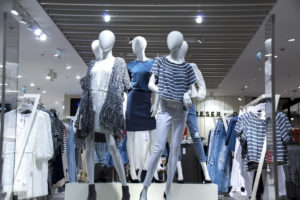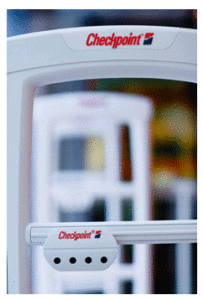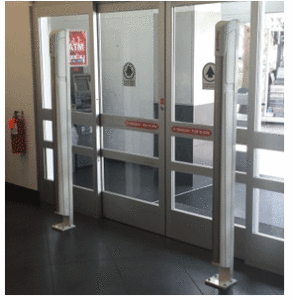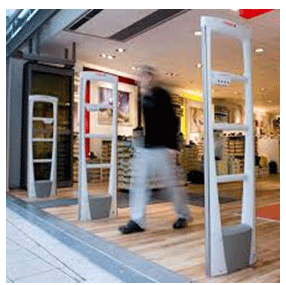 Each year retailers take inventory of their merchandise, counting what they have in the store, reconciling that information against sales receipts, vendor credits and receipts and markdowns. Usually the result is some amount of shortage or merchandise shrink due to merchandise that cannot be accounted for and losses due to certain markdowns and damaged products. I have in rare instances seen overages, but those are usually the result of offsets from prior year shortages often attributed to paperwork errors. The store objective each year should be to improve upon the prior year inventory result. Certainly the best case would be to have zero dollar shortages every year, but that is not a realistic expectation. I try to explain to employees that if one package of gum were to be stolen during the year, you have incurred shortage. There are steps a store owner or manager can take to work towards that yearly improvement and shoot for a zero dollar shrinkage year.
Each year retailers take inventory of their merchandise, counting what they have in the store, reconciling that information against sales receipts, vendor credits and receipts and markdowns. Usually the result is some amount of shortage or merchandise shrink due to merchandise that cannot be accounted for and losses due to certain markdowns and damaged products. I have in rare instances seen overages, but those are usually the result of offsets from prior year shortages often attributed to paperwork errors. The store objective each year should be to improve upon the prior year inventory result. Certainly the best case would be to have zero dollar shortages every year, but that is not a realistic expectation. I try to explain to employees that if one package of gum were to be stolen during the year, you have incurred shortage. There are steps a store owner or manager can take to work towards that yearly improvement and shoot for a zero dollar shrinkage year.
The first step to improve inventory is to look at merchandise protection strategies in the store. Are retail anti-theft devices being used to prevent shoplifting as well as employee and vendor theft? A theft prevention system includes having an electronic article surveillance (EAS) system installed. This would encompass EAS antennas at entry/exit points, EAS soft tags, labels and hard tags on as many pieces of merchandise as possible and deactivation pads and detachment tools at checkout lanes. By protecting merchandise with retail anti-theft devices, shoplifters and potential dishonest employees are deterred from trying to steal. EAS protected merchandise also activates alarms if a shopper forgets about an item on the bottom of the shopping cart that has not been paid for and a tag is not removed or deactivated. Remember, if merchandise hasn’t been paid for, regardless of the intention of the customer, it is shortage.
There are other things that a store can do to improve inventory results from one year to the next:
- Consider offering incentives to employees who deter a theft through great customer service. Employees on the sales-floor are your first line of defense against shoplifting. If they are walking their areas offering assistance, they will walk upon a customer attempting to conceal merchandise, remove items from packaging or tamper with EAS tags. Offering assistance, remaining in the area and communicating with managers is an effective method of deterrence without accusing someone of stealing. An incentive for reporting this type of activity may be the purchase of a drink or putting the employee in for a weekly or monthly drawing for a $5 gift card. Be creative.
- Education/Training – Make sure employees know what your inventory results are and how much was lost in the last inventory. I always made it a point to share that information and celebrate it when we had good results. Let your employees know that they make a difference. Employees also need to know how to properly respond to EAS alarms and recover merchandise without making accusations. When training is not continuous employees become complacent and begin to wave people out the door who set off an EAS alarm. Eventually that complacency turns to ignoring the alarms altogether and the system is rendered useless. Alarm activations also need to be recorded so managers can review for trends and ensure there are no malfunctions.
- Make employee receipt checks and bag checks mandatory for EVERYONE. Managers should be the first to show their purchases to an employee for verification. When employees see that no one is exempt, they will not mind doing it themselves. Accountability helps prevent theft.
- Have a program in place for marking merchandise that is purchased for store use. If you have to get a pack of pens from your sales-floor for office use, purchase it or account for it through a ledger and then keep the package and mark it with a date and write “store use” or put a sticker on it. It is easy for merchandise to start being used and not accounted for and it will accumulate in offices from the sales-floor. Account for EVERYTHING, even a paperclip if it is store use.
- Small, independent stores may not have corporate markdowns sent to them. These stores need to evaluate their merchandise and if it isn’t selling, mark them down, but do it incrementally. Start at 10 or 15% and see if you can move it. You don’t want to lose profit margin.
Improving inventory is not an impossible task. Utilize EAS technology to deter and prevent theft. Educate and train employees and empower them with knowledge on shortage issues and how they impact it. Profit from reduced shrinkage!
 After a long and contested election cycle, a new president will be inaugurated and with this result, some experts are predicting the economy will begin to improve significantly.
After a long and contested election cycle, a new president will be inaugurated and with this result, some experts are predicting the economy will begin to improve significantly. customer transaction.
customer transaction. Police Departments across the nation are busy this holiday season launching operations aiming at catching shoplifters.
Police Departments across the nation are busy this holiday season launching operations aiming at catching shoplifters.
 s level, but your bottom dollar. When people have a problem, they research a solution. One way to prevent shoplifting is having an electronic article surveillance system installed by a reputable company. Searching for such a company can be daunting. Shoplifting is an issue that needs to be addressed and resolved quickly. Why would you choose Checkpoint equipment from Loss Prevention Systems Inc. (LPSI?)
s level, but your bottom dollar. When people have a problem, they research a solution. One way to prevent shoplifting is having an electronic article surveillance system installed by a reputable company. Searching for such a company can be daunting. Shoplifting is an issue that needs to be addressed and resolved quickly. Why would you choose Checkpoint equipment from Loss Prevention Systems Inc. (LPSI?) nce and typically resolve potential issues. With its strong frame and Evolve capabilities, it will last a long time and is “future proof”.
nce and typically resolve potential issues. With its strong frame and Evolve capabilities, it will last a long time and is “future proof”.  It’s official folks. It’s December and the year is almost over. It also means that you’ve probably hired some additional help around the store. Whether they be temporary, part-time or full-time employees, they all have one thing in common; they have the potential to steal from you. I hate to sound so cynical, but I’m a realist. With December historically being the biggest month for internal theft, I’d thought I’d share some of my tips on how to spot a potential dishonest employee.
It’s official folks. It’s December and the year is almost over. It also means that you’ve probably hired some additional help around the store. Whether they be temporary, part-time or full-time employees, they all have one thing in common; they have the potential to steal from you. I hate to sound so cynical, but I’m a realist. With December historically being the biggest month for internal theft, I’d thought I’d share some of my tips on how to spot a potential dishonest employee.
 The holiday season is officially under way and your stress level is about to go into overload. When we’re overly stressed bad things happen to us mentally, emotionally and physically: headaches, digestive issues, eating too much, concentration problems, decreased impulse control, increased emotional sensitivity, poor planning ability and sleep disturbances.
The holiday season is officially under way and your stress level is about to go into overload. When we’re overly stressed bad things happen to us mentally, emotionally and physically: headaches, digestive issues, eating too much, concentration problems, decreased impulse control, increased emotional sensitivity, poor planning ability and sleep disturbances.

 Are they asleep at the switch? Do they care? Have you trained them how you want the shoplifting deterrence program in your store to work and what their roll in it is? This is not something you can put off. It’s like saving money in an account. You got to start. If you are one of Loss Prevention Systems Customers already, then you know this. That is why we conduct live, personalized shoplifting prevention and loss prevention training for our customers.
Are they asleep at the switch? Do they care? Have you trained them how you want the shoplifting deterrence program in your store to work and what their roll in it is? This is not something you can put off. It’s like saving money in an account. You got to start. If you are one of Loss Prevention Systems Customers already, then you know this. That is why we conduct live, personalized shoplifting prevention and loss prevention training for our customers. 